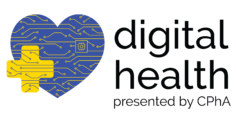 We are at a pivotal time in the evolution of healthcare delivery. Rapidly advancing technologies such as digital medicine, digital therapeutics, voice recognition, virtual reality, and even sensor-enabled “smart” clothing are being applied in healthcare. Artificial intelligence and machine learning are being leveraged to support and optimize healthcare outcomes. Since these technologies rely on data, they are only as accurate as the data fed into them. In the absence of a disciplined approach to driving diverse teams for innovation, new technology will run the risk of reinforcing societal biases.1 As an example, in the presence of gender imbalances, we could see biased outputs that are not representative of the real world. Therefore, workplace gender composition becomes especially important to inform the development of healthcare technologies.
We are at a pivotal time in the evolution of healthcare delivery. Rapidly advancing technologies such as digital medicine, digital therapeutics, voice recognition, virtual reality, and even sensor-enabled “smart” clothing are being applied in healthcare. Artificial intelligence and machine learning are being leveraged to support and optimize healthcare outcomes. Since these technologies rely on data, they are only as accurate as the data fed into them. In the absence of a disciplined approach to driving diverse teams for innovation, new technology will run the risk of reinforcing societal biases.1 As an example, in the presence of gender imbalances, we could see biased outputs that are not representative of the real world. Therefore, workplace gender composition becomes especially important to inform the development of healthcare technologies.
Ninety percent (90%) of women are the primary healthcare decision-makers for their families.2 Yet, who are the innovators shaping the future of healthcare and technology? Let’s take a look at the gender composition in these two industries that have come together in the digital health ecosystem.
Women make-up 70% of the healthcare workforce globally3, yet only 34% of the workforce among the five largest tech companies (Amazon, Apple, Facebook, Google and Microsoft).4 When we look at board directors and senior leadership, women representation is low, with numbers below 20%, which continue to decrease as you move from management level positions to C-suite executives.5 For example, in the digital health space, women make up only 13% of CEOs.6 It seems that outside of clinical roles, the digital health industry has followed the traditional gender disproportion that we have seen in the tech world. This gender gap in the workplace is fueled by stereotypes of women, which influence their leadership potential and future career trajectory.5 Overcoming these gaps will be valuable because gender diversity has been shown to improve innovation intensity and workplace performance.7
Diversity of perspective is key, and while we have been focusing on gender disparity, it also includes equal representation among race, cultures, and beliefs to ensure that we meet the growing demand of delivering high-value care to all populations. Although, there are women pioneers paving the way for digital health, they are the exception, and not the norm – yet. As shared by a pharmacist working in digital health, improvements in gender diversity will require a “collective and intentional effort to reduce unconscious bias, change work culture, and increase the number of female role models and leaders in digital health.” In parallel, we need to bring more men into the conversation. Melinda Gates echoed this sentiment in her book, The Moment of Lift: “Women and men. No one should be left out. Everyone should be brought in. Our call is to lift women up – and when we come together in this cause, we are the lift.”8
References- https://www.nature.com/articles/s41746-020-0288-5
- https://ww2.frost.com/frost-perspectives/femtechtime-digital-revolution-womens-health-market/
- https://www.who.int/news-room/feature-stories/detail/celebrating-women-leaders-in-science-and-health
- https://builtin.com/women-tech/women-in-tech-workplace-statistics
- https://www.catalyst.org/research/women-in-science-technology-engineering-and-mathematics-stem/
- https://healthtransformer.co/meet-the-top-health-disrupthers-of-2020-3c8c32bbe57c
- https://hbr.org/2019/02/research-when-gender-diversity-makes-firms-more-productive
- The Moment of Lift, Melinda Gates
Ellen Berkley, PharmD Candidate, University of California, San Francisco, Class of 2021 is currently doing her Advanced Practice Pharmacy Experiences (APPEs) in the North Bay region. Her experience working at the pharmacist-driven clinical service and data science start-up, Arine, fueled her interest in leveraging technology to help clinicians provide high value, patient centered care. She has been especially inspired to see the pandemic acting as a catalyst for utilization of these virtual services to reach more patients and connect them with pharmacists and the healthcare system. Networking has since led her to forming a weekly digital health group with two amazing pharmacy colleagues to share updates and brainstorm our vision in health-tech. We believe there’s a tremendous future for technological integration in the pharmacy space to drive positive change in the industry. She is looking forward to developing a strong clinical foundation and deep understanding of the pharmacy enterprise to be able to bridge her interest in digital health and innovate as a pharmacy leader, while continuously learning new things to enhance patient care.
Christy Cheung, PharmD, is a Medical Science Liaison, Neurology at Sanofi Genzyme and founder of the Think Digital Health blog. She graduated from the University of British Columbia in Canada in 2019 and completed a Medical Affairs Fellowship at Sanofi Genzyme (2019-2020). As a student and digital health enthusiast, she attended a number of healthcare hackathons, which fueled her passion in this area and led to the creation of her blog. She has been a guest on podcast episodes such as Pharmacy, IT, & Me, and recently became a contributor for the Pharmacy Informatics Academy. She also co-developed the “Roadmap to Learning AI for Healthcare” series and hopes to increase awareness of digital health within the profession.

